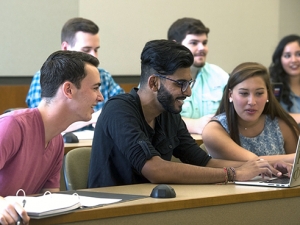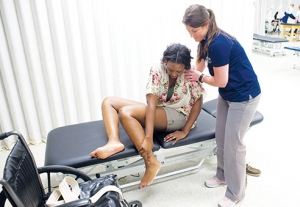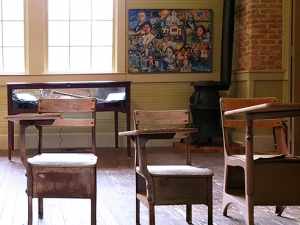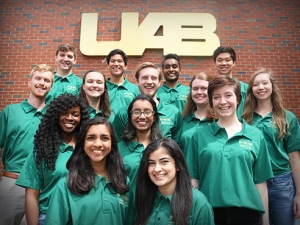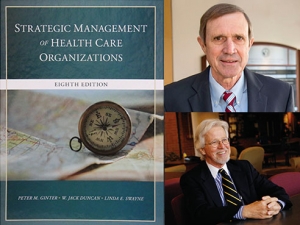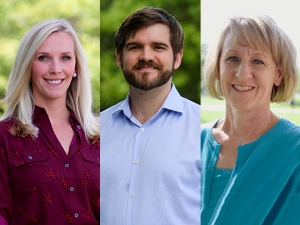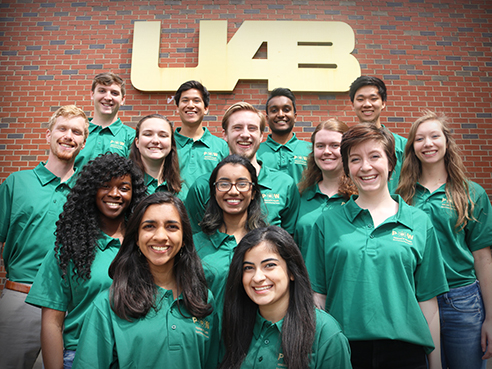 The Promoters of Wellness teamCollege can be a stressful time. Between attending class, studying, working and socializing, it can be difficult for students to take care of themselves. Often they need someone to listen, advise and offer insights and support.
The Promoters of Wellness teamCollege can be a stressful time. Between attending class, studying, working and socializing, it can be difficult for students to take care of themselves. Often they need someone to listen, advise and offer insights and support.
Who is better suited than their peers?
At UAB, peer educators and coaches are learning about their own health and well-being and how to advocate for the care of others through the Promoters of Wellness (POW) program, launched in fall 2017.
“For those who want to go into health education or health promotion, this is the perfect platform for them to gain experience in the helping profession outside of coursework and before their internship,” said Laura Forbes, Ph.D., professor of community health and human services in the School of Education.
The program, a partnership between Education’s Department of Human Studies and UAB Student Health and Wellness Center, provides academic training for students who become peer educators and coaches. They host interactive events, share information on ways to respond to a range of health issues — from sexually transmitted diseases to tobacco use — and listen to fellow students in confidential, nonjudgmental sessions.
|
This bridge between Academic Affairs and Student Affairs demonstrates UAB’s commitment to taking care of the “whole student.” |
The cross-campus collaboration is a bridge between Academic Affairs and Student Affairs that demonstrates UAB’s commitment to taking care of what Forbes calls the “whole student.”
“Sometimes I feel like we think of each other as separate entities, like as a faculty member I’m supposed to assign grades and edit assignments, and Student Affairs is supposed to deal with the other student welfare issues.
By keeping the student at the forefront, the two groups developed a program “most conducive to serving the student — forming a seamless path to earn credit, engage others on health concerns and gain knowledge and para-professional insight,” Forbes said.
Two steps forward
The training is open to any undergraduate or graduate student from any major and requires only a two-semester commitment to complete. Any student with an interest in encouraging or supporting people could benefit, said Mandy Parente, the primary instructor for both courses, CHHS 426/526 and CHHS 428/528.
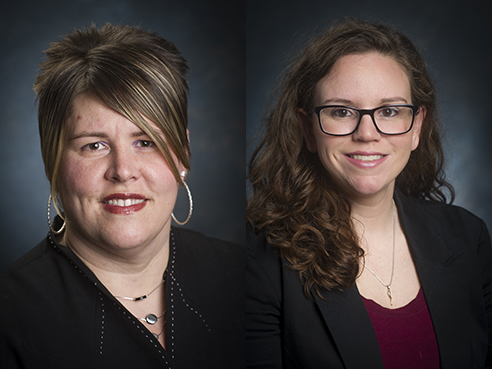 Laura Forbes, Ph.D., and Mandy Parente
Laura Forbes, Ph.D., and Mandy Parente
“Students who have an interest in helping people and are looking to improve skills like public speaking, event planning, active listening or empathy-building would be appropriate for this class,” Parente said.
First, students learn about program delivery, presentation skills, introductory health information, ways to address ethical issues and take a national exam to become a Nationally Certified Peer Educator (CPE). In the second course, students perform service-learning with UAB’s Student Health and Wellness Center.
Students are cross-trained in both peer education and coaching, and they gain confidence, efficacy and skills that are useful in the professional sphere.
“A peer educator generally learns more about themselves than the peers that they educate,” Forbes said. “They learn to deal with tough questions and topics that are difficult to address. Peer educators may go into helping careers or other fields and apply the skills they’ve learned. They’re getting their bearings as to what it’s like to be health practitioners or counselors.”
Coaching sessions
POW’s peer coaches listen, understand and offer non-judgmental support. UAB students, who are entitled to up to three free peer coaching sessions per semester, can schedule a session online at uab.edu/pow.
“They can come in and talk to a certified peer educator about things like stress, anxiety or not being connected on campus, especially if they think, ‘I want to talk to someone, but I don’t need counseling,’” said Parente, an interpersonal violence prevention coordinator in Wellness Promotion.
Students interested in becoming a Promoter of Wellness can register for CHHS 426/546 or email wellnesspro@uab.edu for more information.

